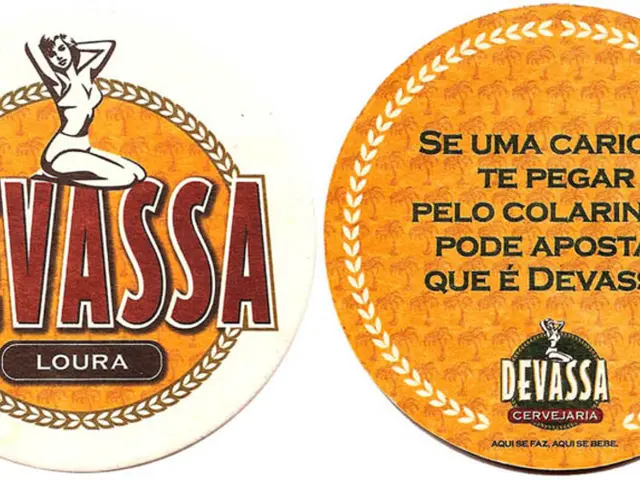Essential Computing Tools Shaped Our Youthful Experiences - Computing software was an essential component of our adolescent years.
Rewrite:
Reminiscing Nostalgic Digital Necessities: ICQ, eMule, Nero, WinAmp, & YouTube Converters
By Wiebke Tomescheit
+ - 4 Min
Remember the days when our rooms were adorned with bulky desktops and much-coveted monitors? As the internet swept through German households around the year 2000, we, the younger generation, took reign of these new-age devices. The scenes were typically a cluttered desk, a dusty CRT monitor, and a noisy PC, serving as the gateway to endless possibilities.
Ah, the digital indulgence that wasn't always law-abiding (cough, The Pirate Bay, cough), but we meant no harm. Our social media escapades, compared to the often toxic atmospheres of today, were noticeably more harmonious on MySpace, Facebook, and StudiVZ. But what essential tools were indispensable for our home computers? Let's revisit some programs we often found on our desktops.
ICQ
Straight to the point, a direct line to our most trusted squad. ICQ was a petite, simple messaging platform, allowing users to chat with contacts in real-time. Each user had an identifier, known as a nickname and number, which triggered sentimental nostalgia even today for some. In a world where mobile phones were not yet a staple accessory, the importance of ICQ cannot be overstated, especially when considering the exorbitant cost of SMS messages at the time, and the advent of messaging services like WhatsApp was yet to be imagined.
eMule
When we craved music, we ventured out to stores like MediaMarkt, sifting through the labyrinthine CD departments. However, purchasing four albums at 20-40 euros per month was a luxury we couldn't long afford. So, it came as no surprise that many of us showed great curiosity towards programs enabling us to download our desired tracks for free. File sharing reigned supreme, and eMule was one of the pioneering platforms. Competing applications included Napster, Kazaa, uTorrent, WinMx, Limewire, to name a few.
Although ISDN connections bestowed patience in ample quantities, one could still find themselves waiting for days to download a single song. The cruel twist of fate was that an unfortunate few would stumble upon the infamous "warning wave", leaving them with exorbitant, incomprehensible fines. But, who am I to judge, I've gifted my fair share of pirated tracks to my girlfriend in those days!
WinAmp
To truly enjoy our legally or illicitly procured MP3 files on our PCs, we needed a media player. WinAmp offered the perfect blend of ease of use and quality audio playback. The option for graphical equalizers and psychedelic visualizations made it an even more attractive tool for the tech-savvy youth of the late '90s. Ranks of pro versions were rumored to exist, but as word on the street goes, these remained nothing but myths and fantastical stories. WinAmp provided exactly the service we craved, and oh boy, we were fiercely protective of our little, free player!

Nero Burning Rom
CD and DVD disks stood proudly next to the monitors. We wrote games, software, videos, documents, and (of course) music onto them. To complete the process, we required a reliable CD burner and a burning program - Nero Burning Rom took center stage for most users. It was effortless to use, free, and assisted us in creating sensational mix CDs to share with friends. There were two types of people: those who haphazardly jotted down their burn logs with a thick, blue marker, dismissing the need for protective cases, and those meticulous individuals who painstakingly designed custom cover art in Microsoft Paint.
YouTube to MP3 Converter
Some tracks lied scarce on the platforms mentioned earlier, and some were simply unavailable for legal purchase. But they were there on YouTube. Transforming YouTube videos into audio files for our personal listening pleasure required a nifty, relatively unknown software - the YouTube to MP3 Converter. With just a few clicks, it extracts the audio tracks from videos and saves the MP3 files on your computer. Thank you, little program, for your invaluable service!
- Digital culture
- Computer program
- ICQ
- Youth
- Music
Insights:
ICQ: The world's first popular instant messaging client, launched in 1996 by Israeli company Mirabilis, gained immense popularity among young people in the late 1990s. The service introduced features such as user lists and "status" indicators, and competitors like AOL Instant Messenger and Microsoft Messenger emerged in the early 2000s, eventually surpassing ICQ's user base.
eMule: Originally released as an open-source fork of eDonkey2000 in 2002, eMule gained widespread popularity among youths for its file sharing capabilities, particularly in the areas of music, movies, and software. Although it contributed to the rise of legal content platforms, eMule, along with other peer-to-peer file sharing software like Napster, Kazaa, uTorrent, WinMx, and Limewire, faced legal challenges over copyright infringement.
Nero Burning Rom: German software company Nero released Nero Burning Rom in the late 1990s, offering an intuitive CD and DVD burning solution. The application became a must-have program among young users, facilitating the sharing of music, videos, and data on CDs and DVDs. With the rise of cloud storage and USB drives, Nero Burning Rom fell out of favor, but it remains a reference for optical media utilities.
WinAmp: WinAmp, developed by Nullsoft and later acquired by AOL, exploded onto the digital music scene in 1997. Known for its skinnability and capable playback of MP3 files, WinAmp played a significant role in shaping MP3 culture and allowed users to curate and personalize their music libraries. WinAmp maintains a cult following and has influenced modern media players with its unique user interface and features.
YouTube to MP3 Converter: First appearing in the mid-2000s, the YouTube to MP3 Converter helped users extract audio tracks from YouTube videos, making it possible to convert them into MP3 files for personal listening purposes. The software remains a popular tool despite continuous legal challenges around content accessibility and copyright.

- The community policy for ICQ, a popular instant messaging client of the late '90s, likely emphasized real-time chat etiquette and privacy concerns, as it served as a direct line to trusted squads.
- In the midst of the digital age, employment policies might have taken advantage of the youth's familiarity with computers and gadgets, such as the use of eMule, a file sharing program for music downloads, during employment.
- The Aussiedlerbote, a portal for German immigrants, may have been one of the platforms where programs like the YouTube to MP3 Converter were shared or advertised, catering to the younger generation's desire for accessing and saving music from various sources, including YouTube.
- The evolution of technology brought about various gadgets that irrevocably impacted employment policies, as some Generation Y and Z individuals would demonstrate proficiency with programs like Nero Burning Rom, WinAmp, and More, thus increasing their employability in tech-related fields.
- With the growth of the internet and digital technology during that time, it's possible that community policies and employment policies took notice of the younger generation’s increasing interest in computers and software programs, such as ICQ, and utilized these programs for communication and collaboration purposes.







